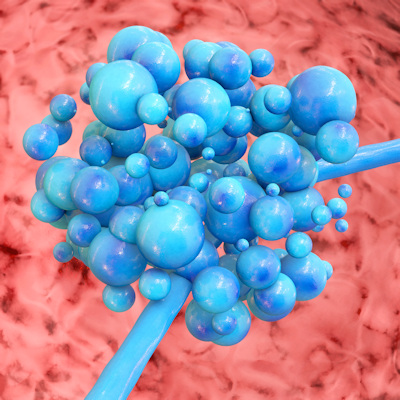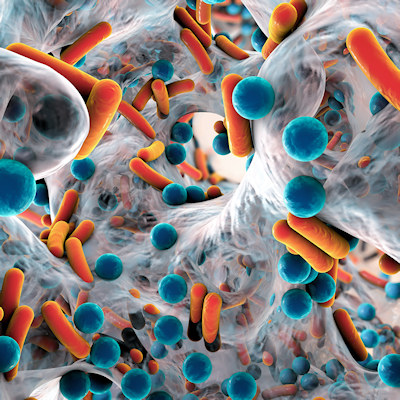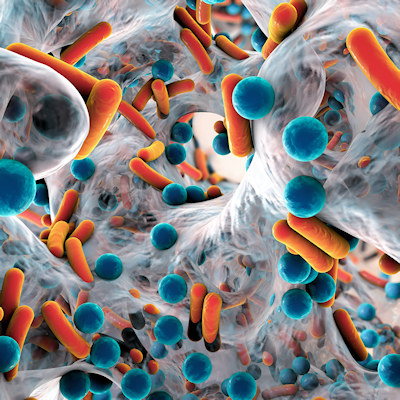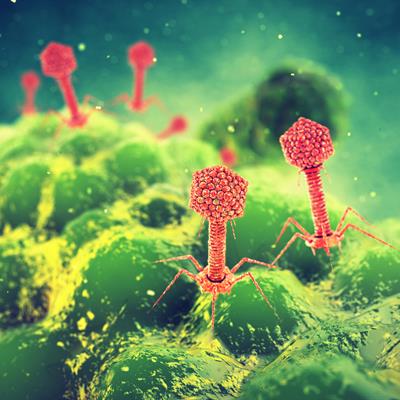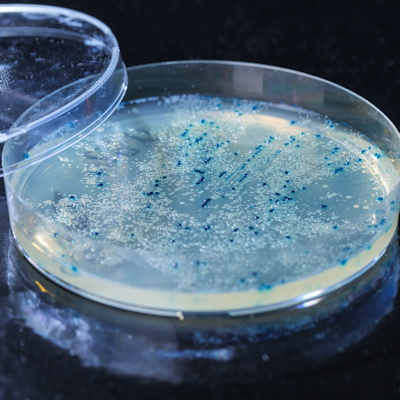May 26, 2023 -- A tool that could help reduce the spread of antimicrobial resistance shows early promise. In an article published Thursday in Microbiology, researchers describe the use of CRISPR technology to eliminate resistance in a wide range of bacteria.
Antimicrobial resistance (AMR) occurs when microbes evolve mechanisms that protect them from antimicrobials -- drugs that treat infections. Antibiotic resistance, a major subset of AMR, applies specifically to bacteria resistant to antibiotics. The World Health Organization (WHO) calls AMR one of the top 10 global public health threats, with 1.27 million deaths directly caused by bacterial AMR annually, and nearly five million annual deaths associated with it.
Antimicrobial-resistant organisms are found in people, plants, animals, water, soil, and air. They can spread from person to person or between people and animals, including meat products. Primary AMR drivers include antimicrobial overuse; lack of clean water, sanitation, and hygiene; and poor infection control in health-care facilities.
Bacteria often develop resistance when resistant genes are transported between hosts. This can occur via plasmids, circular DNA strands which can spread easily between bacteria and swiftly replicate within the body, as well as in environmental settings, such as waterways.
Since AMR genes are widely disseminated on plasmids, interventions aimed at blocking plasmid uptake and transfer may curb AMR spread. CRISPR delivery tools which target and cleave AMR plasmids can protect their bacterial hosts from plasmid uptake or re-sensitize them to antibiotics by removing resident plasmids.
The team harnessed the CRISPR-Cas gene-editing system, which can target specific DNA sequences, and cut through them when encountered. Previous studies used CRISPR-Cas-based technology to remove plasmids encoding AMR genes from target bacteria, using either phage- or plasmid-based delivery vehicles that typically have narrow host ranges. However, since bacteria in nature are embedded in complex communities, an efficient, broad host-range CRISPR delivery tool is needed for their removal.
The researchers engineered the broad host-range IncP1-plasmid pKJK5 to encode cas9 programmed to target an AMR gene. They demonstrated that the resulting plasmid, pKJK5::csg, can block the uptake of AMR plasmids and remove resident plasmids from Escherichia coli, a bacterium commonly found in the intestines of mammals. Due to its broad host range, pKJK5::csg also blocked AMR plasmid uptake in a range of environmental, pig-, and human-associated coliform isolates, and in two species of Pseudomonas, bacteria common in soil and water.
The researchers also engineered a plasmid that specifically targets the resistance gene for gentamicin, an antibiotic commonly used to treat a variety of bacterial infections. In experiments, the plasmid protected its host cell from developing resistance, and effectively targeted antimicrobial resistant genes in host cells, reversing their resistance.
The researchers now hope to conduct experiments in more complex microbial communities, to help reduce AMR spread in environments known to be breeding grounds, including sewage treatment plants.
"Antimicrobial resistance threatens to outstrip COVID-19 in terms of the number of global deaths," lead author David Walker-Sünderhauf, of the University of Exeter, noted in a statement. "We urgently need new ways to stop resistance spreading between hosts."
Copyright © 2023 scienceboard.net




